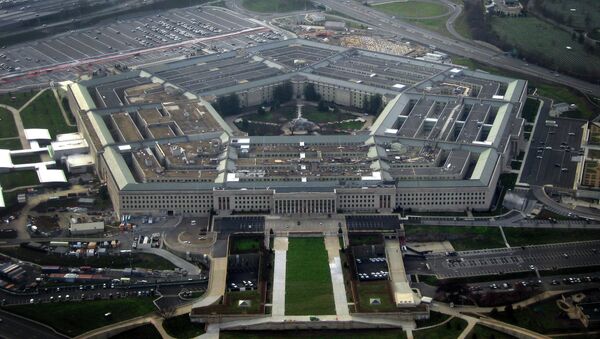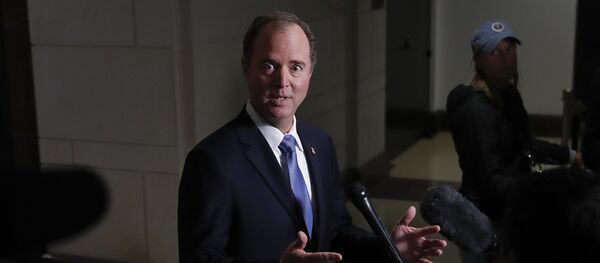The document, officially published Friday, claims a stronger US nuclear deterrent is necessary amid growing global threats, and aims particularly at discouraging Russia, China, Iran and North Korea from either developing new weapons or expanding existing arsenals.
While accusing Russia of conducting aggressive behavior, the document paves the way for the modernization and expansion of US nuclear capabilities.
The US Defense Department indicated that it does not exclude the possibility of using nuclear weapons in extreme circumstances.
Iranian political observer Hassan Beheshtipour, an expert on nuclear issues and foreign policy and an analyst with Press TV, told Sputnik in an interview that the new US nuclear doctrine is itself not only a threat to the countries listed in the document as potential threats, but "a threat to the world and humanity."
"This aspiration by the US is igniting another arms race, in which other countries will also seek weaponizing and improving their nuclear potential. That, in turn, will break the international nuclear balance of power," Beheshtipour said.
He added that, as a businessman who has no competent knowledge of foreign policy, US President Donald Trump believes everything can be measured by the dollar.
"The decisions Trump has made in his first year as president of the United States have showed that he doesn't understand the global reality in the military and defense sector. With the mindset of a far-seeing entrepreneur, Trump believes he can benefit from nuclear weapons. This is not only a playing with fire posture — you can call it playing with the security of the US and other international powers. Unfortunately, Trump wasn't bearing that in mind," Beheshtipour told Sputnik.
"The doctrine's hostile stance toward Russia and China is astounding," the expert added. "Both countries are self-reliant and have the ability to improve their nuclear potential, just like the US. So do other nations, such as the UK, France, India, North Korea. I hope the US can reconsider this doctrine. If it doesn't, we are facing apocalyptic consequences of a scale that no one could have imagined during the last century's arms race."
Iranian political analyst Mostafa Azerian pointed out that the threats mentioned in the NPR — Iran in particular — are imaginary and world powers cannot believe they are real.
READ MORE: Russia Can't Confirm US Fulfilled Limits on Strategic Arms Within START Treaty
"In recent decades, the US has demonstrated it is interested in taking control of the world order and that it cannot accept other countries developing their technology and military potential just as rapidly. Take Russia, for instance: in recent decades the country hasn't only managed to build up its military potential, it has the largest stockpile of nuclear weapons. The US cannot take it, and it showed in their nuclear posture. Meanwhile, Russia is a serious and very rational player on the global political arena," he said.
"Speaking of Iran, the US has tried for decades to present the Islamic Republic as the biggest threat — not only for America but for the whole world — and used it as an excuse to expand its missile program to Eastern European borders. Ironically, it claims the Iranian missile program as a threat."
Beheshtipour pointed out that we shouldn't forget about the international agreements the US has signed, such as the Treaty on Nonproliferation and other deals it agreed to with Moscow. The US cannot unilaterally withdraw and abandon these commitments.
READ MORE: Iran Deal Revision Impossible Amid Mistrust Between Tehran, Washington — Moscow
"I believe that in order to prevent the nuclear race catastrophe scenario this US doctrine may lead to, a special committee under the UN Security Council or an IAEA special committee should be created that would pressure the US into reconsidering the doctrine," he recommended. "Also, international world peace and security organizations have to start campaigning to counter these moves by the US that, in fact, are more dangerous than the threats the world faced back in 70s and 80s during the cold war era. The consequences can be much worse than we envision. It is possible that the US nuclear posture doesn't just start another arms race but starts an apocalypse."
The views expressed in this article are solely those of the speakers and do not necessarily reflect the official position of Sputnik.





